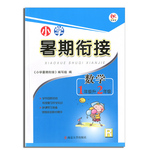题目内容
War and Peace _____ the longest book I've ever read.
- A.is
- B.are
- C.had been
- D.have been

 学而优暑期衔接南京大学出版社系列答案
学而优暑期衔接南京大学出版社系列答案 Happy holiday欢乐假期暑假作业广东人民出版社系列答案
Happy holiday欢乐假期暑假作业广东人民出版社系列答案Winston Churchill once described Russia as “a riddle wrapped in a mystery(谜) inside a puzzle”. Observers of Russia in the 21st century could surely say the same of the country’s president, Vladimir Putin.
Born in Leningrad, six months before the death of Stalin, the young Putin experienced a poverty-stricken childhood but received a good education. He developed lifelong interests in judo and spy novels, and first applied to the KGB(苏联国家安全委员会) at the age of 17. When they told him to go away and come back with a degree, he completed with an efficiency(效率) that would later serve him well.
Putin used his KGB training, plus his own discipline and common sense, in a series of jobs. He became acting President on 31 December 1999, when president Boris Yeltsin resigned in a surprising move. Putin won the 2000 presidential election and in 2004 he was re-elected for a second term lasting until 7 May 2008.
Due to term limits, Putin was unable to run for a third presidential term. After the victory of Dmitry Medvedev, in the 2008 presidential elections, he was appointed to be Russia’s Prime Minister.
Putin is regarded as one bringing political stability and re-establishing the rule of law. During his presidency, Russia’s economy(经济) bounced back, seeing GDP increase by 72%, poverty cut more than half, and average monthly salaries increase from $80 to $640. Analysts have described Putin's economic reforms as impressive. At the same time, his conduct in office has been questioned by political opposition at home, foreign governments, and human rights organizations for leading the Second Chechen War, and for his record on human rights and freedoms.
Whether he wants to drive Russia into a new stage, or believes in the values of its Soviet past, he is determined to put his nation back on its feet. To do this, Vladimir Putin may have to show his true colors sooner rather than later.
Russia into a new stage, or believes in the values of its Soviet past, he is determined to put his nation back on its feet. To do this, Vladimir Putin may have to show his true colors sooner rather than later.
【小题1】 What would be the best title for the text?
| A.The Mysterious President of Russia |
| B.Russia’s High-growth Economy |
| C.Russia’s Far Past and Near Future |
| D.The Political Situation in Russia |
| A.His family background. | B.His belief in Soviet. |
| C.His efficiency in jobs. | D.His love for freedom. |
| A.The number of the poor reduced to 50%. |
| B.Every Russian enjoyed equal rights. |
| C.Russia’s economy picked up rapidly. |
| D.Russian people lived a peaceful life. |
 an we learn about Putin from the text?
an we learn about Putin from the text?| A.He gains respect of foreign governments. |
| B.He always fought for human rights. |
| C.He ran for president a third time. |
| D.He is a politician of great achievements. |
William Shakespeare is the most famous playwright (剧作家). Although he died in 1616, people still go to see his plays. Among the most popular are Romeo and Juliet, A Midsummer Night’s Dream and Hamlet — the story of a prince who struggles to respond to the crimes around him.
Shakespeare, who was born in 1564, was an actor as well as a writer. Most of his ideas for plays were taken from history, people’s conversation, ancient stories, and also from other writers. He wrote not only about kings and queens and princes, but also about friends and ordinary people. He wrote about the cruelty of war and the bravery of heroes, as well as about jealousy, joy, hate, ambition and love. His stories live on. The tragedy Romeo and Juliet was reborn as the musical West Side Story and more recently as the movie Romeo and Juliet with the wonderful performance of Leonardo DiCaprio and Claire Danes.
He invented a number of great characters: powerful magicians, thrilling witches, smart women and both wise and wicked men. He also invented some great phrases. If you’ve ever said, “Oh, for goodness sake!” you can thank Shakespeare for that. “To be, or not to be: that is the question,” Hamlet says. “Good night, good night. Parting is such sweet sorrow, that I shall say good night till it is morrow,” says Juliet to her Romeo.
Don’t be surprised if you don’t understand everything when reading Shakespeare or watching one of his plays because the meanings of many words have changed over the years. And Shakespeare’s characters speak in poetry, so their speeches can be complicated.
It does help to find out a little bit about the story before reading a Shakespeare play. It’s worth the effort. As Shakespeare wrote, “All the world is a stage.” And in his plays you’ll find that an entire world is waiting for you.
1.Shakespeare created the following characters EXCEPT ________.
|
A.Juliet |
B.Hamlet |
C.Claire Danes |
D.Romeo |
2.From Paragraph 3 we can learn that ________.
|
A.most of the characters created by Shakespeare were negative ones |
|
B.most of the phrases used today were invented by Shakespeare |
|
C.“Oh, for goodness sake!” is what Juliet says to Romeo |
|
D.Shakespeare contributed greatly to the development of English |
3.Which of the following is a reason why it’s difficult to understand some of Shakespeare’s plays?
|
A.There are many new words in his plays. |
|
B.He wrote his plays using uncommon words. |
|
C.The characters in his plays speak in poetry. |
|
D.Most of the words in his plays are outdated. |
4.We can infer from the passage that ______.
|
A.most of Shakespeare’s plays have been made into films |
|
B.language changes with the development of society |
|
C.Shakespeare made lots of money from his works |
|
D.it is more useful to read Shakespeare’s works than to watch them |